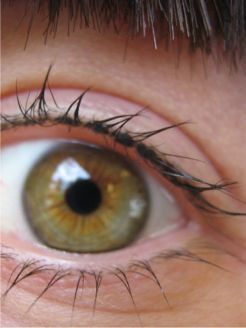If you are an HSP, you are different in the way you look at the world. I’m sure you’ve heard this before. And you know instinctively that it is true. But those differences go way beyond the surface interactions you have with the rest of the world. It’s why so many of us feel like we are aliens from another planet trying to live amongst a culture we can never assimilate into.
At the crux of this difference are two very important phenomena: perception and emotion. Both are intertwined and work together to determine who you are: personality, interpersonal relationships, philosophy. Basically, how you see and react to your environment.
Let’s start with perception. We get our sense of the world through our perception of it. How we see life comes to us via our senses: Sight, Sound, Touch, Taste, and Smell. When we encounter these sensory cues, our brains attempt to interpret that input. The resulting perception is filtered through many different screens. For instance, the light through which we see an object can influence the interpretation of what we see.

Perception than is an inference from which we draw our assumptions of how life is. For the average man/woman on the street, this often causes differences in the conclusions they draw from their own perception. When you factor into the mix the differences an HSP brain draws from, you will naturally end up with a perception much different than that average man or woman.
Recently, scientists have begun to discover that there are other influencers to our perception than sensory input. One of those influencers is emotion. Or how we feel at a given moment may also shape what we see. Their conclusion is that there is evidence that perception is more a rendering based on emotional experiences rather than a direct reflection. Emotion not only colors what we take into our awareness – it determines it.
This adds another layer of variance in how we HSPs view life events. We know a common HSP trait is deeply felt emotions. Emotions that touch other people — joy, sadness, being moved by what we see or hear, how quickly and deeply we fall in love, etc. – send us to the extreme end sooner and more often than our non-HSP counterparts. We are in a constant state of one emotion or another, with our emotions many times in that extreme state. What different results we get when we factor in that extreme nature. And how hard it is for the other 80% to even begin to comprehend that.
There is good to be found in this observation. Combining a deeply felt emotional awareness with an HSP’s empathy can infuse positive traits into issues we face today. Tolerance, patience, and objectivity can lead to change and a better world for all. This difference in you can not be taught. It is genetic. Use it wisely and use it well. It matters more than you know.
Suggested Further Reading:
The Impact of Emotion, Perception, Attention, Memory, and Decision-making
The Emotions we Feel May Shape What We See
Copyright 2021, Monica Nelson

